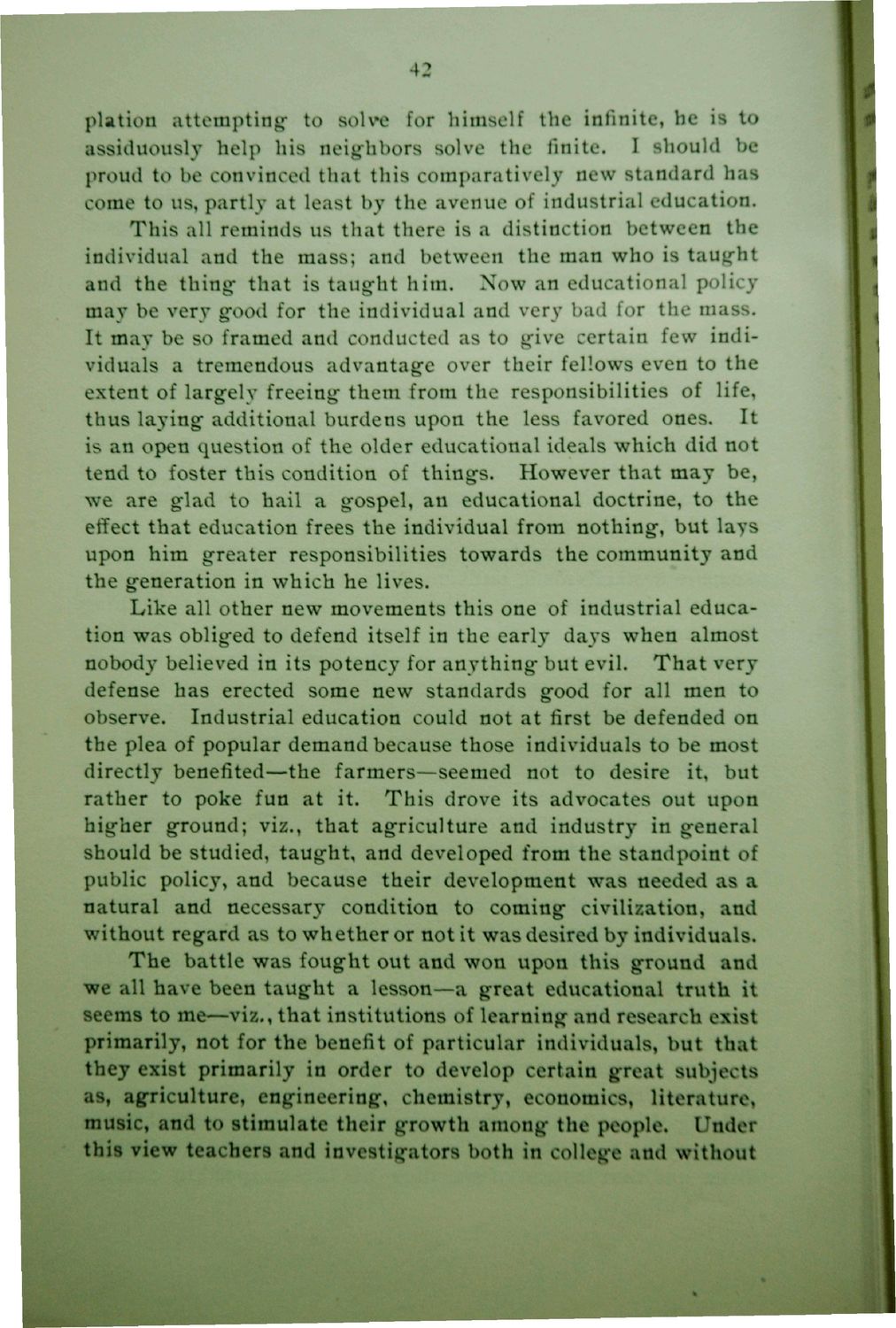| |
| |
Caption: Dedication - Ag Building
This is a reduced-resolution page image for fast online browsing.

EXTRACTED TEXT FROM PAGE:
42 plation attempting" to solve for himself the infinite, be is to assiduously help his neighbors solve the finite* I should be proud to be convinced that this comparatively new standard has come to us, partly at least by the avenue of industrial education. This all reminds us that there is a distinction between the individual and the mass; and between the man who is taught and the thing* that is taught him. Now an educational policy may be very good for the individual and very bad for the mass. It may be so framed and conducted as to give certain few individuals a tremendous advantage over their fellows even to the extent of largely freeing them from the responsibilities of life, thus laying additional burdens upon the less favored ones. It is an open question of the older educational ideals which did not tend to foster this condition of things. However that may be, we are glad to hail a gospel, an educational doctrine, to the effect that education frees the individual from nothing, but lays upon him greater responsibilities towards the community and the generation in which he lives. Like all other new movements this one of industrial education was obliged to defend itself in the early days when almost nobody believed in its potency for anything but evil. That very defense has erected some new standards good for all men to observe. Industrial education could not at first be defended on the plea of popular demand because those individuals to be most directly benefited—the farmers—seemed not to desire it, but rather to poke fun at it. This drove its advocates out upon higher ground; viz., that agriculture and industry in general should be studied, taught, and developed from the standpoint of public policy, and because their development was needed as a natural and necessary condition to coming civilization, and without regard as to whether or not it was desired by individuals. The battle was fought out and won upon this ground and we all have been taught a lesson—a great educational truth it seems to me—viz., that institutions of learning and research exist primarily, not for the benefit of particular individuals, but that they exist primarily in order to develop certain great subjects as, agriculture, engineering, chemistry, economics, literature, music, and to stimulate their growth among the people. Under this view teachers and investigators both in college and without
| |